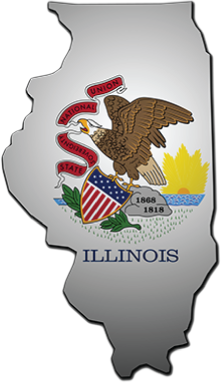Nursing Home Wrongful Death Attorneys in Illinois
The term “wrongful death” is used to describe a situation in which someone dies as a result of the negligence or misconduct of another person. To bring a wrongful death claim, the victim’s family must show that the death was caused by the defendant’s actions. The damages that can be recovered in a wrongful death case include economic damages, such as medical costs, funeral costs, the loss of the decedent’s financial contributions, and non-economic damages, which can consist of compensation for grief and the loss of companionship.
A nursing home wrongful death is defined as a fatality that occurs due to the negligence of a nursing home staff member or the facility itself. There are many different ways in which a nursing home wrongful death can occur, and the specific details will vary depending on the case. However, some common examples include:
• Bedsores or pressure ulcers that become infected
• Malnutrition or dehydration
• Falls
• Medication errors
• Abuse or neglect
What are the Causes of Wrongful Death in Nursing Homes?
There are many potential causes of wrongful death in nursing homes. One of the most common is neglect or abuse. This can include staff members failing to provide adequate care, not following proper procedures, or purposely harming residents. Other potential causes include physical hazards in the facility, such as slippery floors or defective equipment. If a nursing home does not maintain a safe environment, it could be held liable in a wrongful death suit.
Another potential cause of wrongful death is medical malpractice. This could involve a staff member making a mistake when providing care, such as giving the wrong medication or failing to properly monitor a resident’s condition. If a nursing home does not have adequate staffing levels or if staff members are not properly trained, this could also lead to medical malpractice.
Who Is Eligible to File a Nursing Home Wrongful Death Lawsuit?
Not everyone can file a wrongful death lawsuit. As is the case with all lawsuits of this type, those filing suit must meet certain requirements. In the case of a nursing home death, you might be eligible to file a wrongful death lawsuit if you are:
- Immediate Family
A person’s closest surviving family members, including spouses, biological children, and adopted children, can file a nursing home wrongful death lawsuit. Some states extend this to other financial dependents, life partners, and common law spouses may also be able to file. - Extended Family
Some states permit extended family, including siblings, cousins, and other relatives to file wrongful death lawsuits. - Someone Who Suffers Financially from the Death
Some states allow siblings, cousins, and other relatives to file wrongful death lawsuits if they are financially dependent on the deceased.
What Should I Do If I Suspect a Nursing Home Was Responsible for My Loved One’s Death?
If you have lost a loved one in a nursing home, it is important to speak with an experienced wrongful death attorney to discuss your legal options. An attorney can help you understand the law and how it may apply to your case. Additionally, an attorney can investigate the circumstances surrounding your loved one’s death and gather evidence to support your claim. If you have been the victim of nursing home negligence, you may be entitled to compensation for your losses.
Nursing home wrongful death laws vary from state to state. This includes limits on who can file, as well as how long you have to file (statute of limitations). In most states, the length of time to file after a loved one passes is two years.
If you would like to learn more about the potential causes of wrongful death in nursing homes, contact an experienced attorney today.
Nobody deserves to suffer from poor treatment or neglect when they are in the care of others. If your loved one is or was the victim of nursing home abuse or neglect, we can help. If you’d like more information about dehydration in nursing homes or you have concerns about potential nursing home abuse or neglect, contact the Nursing Home Attorneys at (866) 251-0808.
SCHEDULE A FREE NURSING HOME WRONGFUL DEATH LAWYER CONSULTATION TODAY










